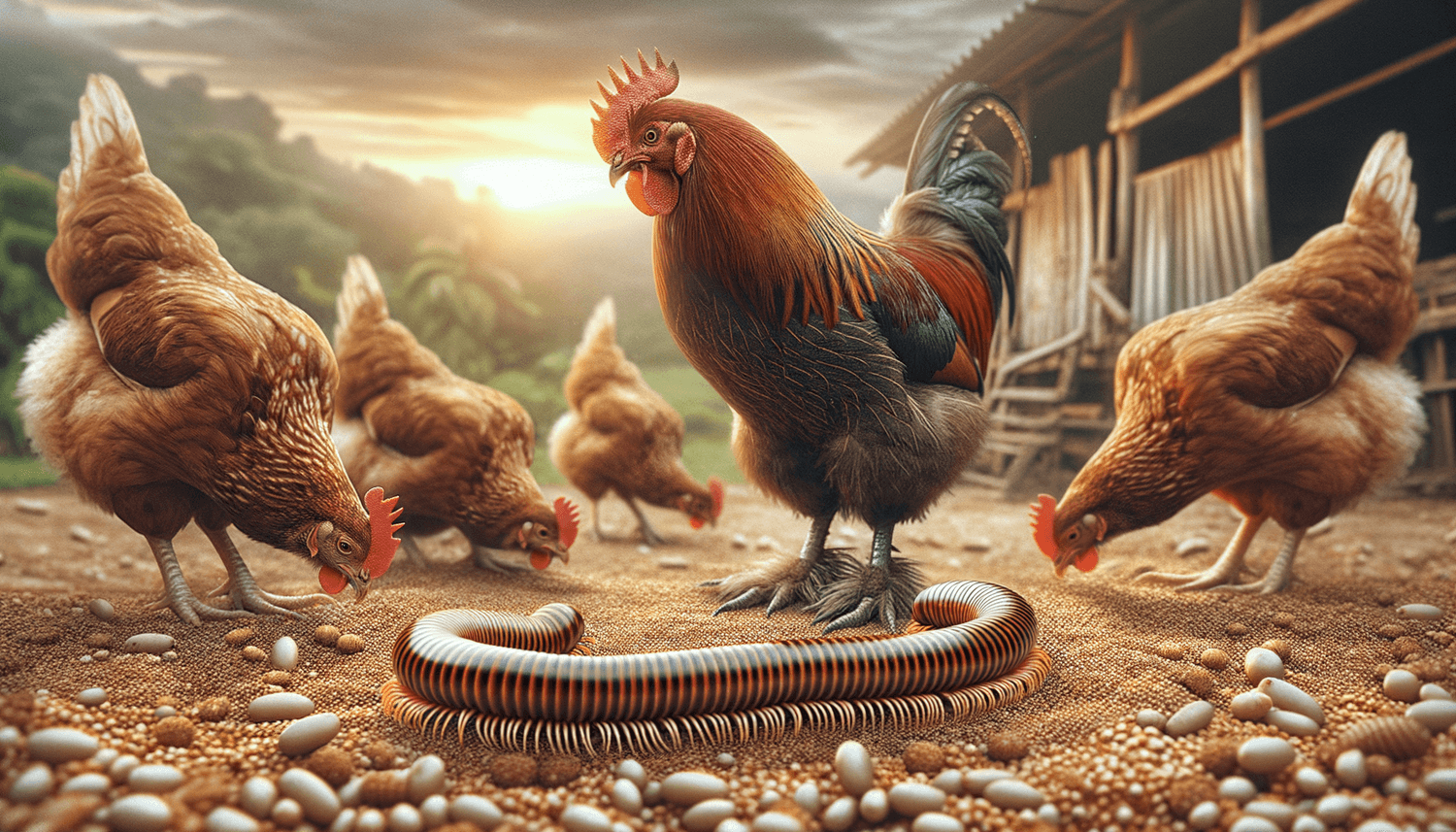Yes, chickens can eat millipedes. While not a traditional food source in a chicken’s diet, millipedes are generally safe for chickens to consume in small quantities. Chickens often naturally forage for insects, which provides them with protein and other nutrients. However, it’s important to note that some millipedes may secrete toxins as a defense mechanism, which could potentially be harmful if ingested in large amounts.
Quick Summary
- Chickens can eat millipedes.
- Millipedes can provide protein but may have harmful toxins.
- There are risks if millipedes are consumed in large quantities.
- Feeding in moderation is key, as part of a varied diet.
Overview of Millipedes
Millipedes are arthropods known for their elongated bodies and numerous legs. They mainly feed on decaying organic matter and are often found in moist environments. Millipedes are not a significant source of nutrition but can be a natural part of a chicken’s foraging diet, offering some protein and other nutrients in small amounts.
Benefits and Risks of Millipedes for Chickens
Chickens may benefit from the protein millipedes provide. However, risks include possible exposure to toxins secreted by some millipedes as a defense mechanism. These toxins vary depending on the millipede species and can sometimes lead to discomfort or more serious health issues for chickens if consumed in large numbers.
Feeding Guidelines
While chickens can consume millipedes that they naturally find while foraging, it is not recommended to deliberately feed millipedes to chickens because of the potential risks. If chickens are foraging in an area with a high millipede population, it’s wise to monitor their intake and provide a balanced diet to minimize any adverse effects.
Alternatives
If feeding millipedes is a concern, there are many safer and healthier alternatives for chickens. These include mealworms, crickets, and other commercially available insects that are bred for poultry consumption, reducing the risk of toxin exposure.
Expert Opinions
Poultry nutritionists and veterinarians generally agree that chickens can safely consume a variety of insects, including millipedes, as part of their diet. However, the consensus is to ensure these insects are only a small portion of the diet, emphasizing the importance of a diverse and balanced nutritional profile for optimal poultry health.
Frequently Asked Questions
If you’re considering adding millipedes to your chickens’ diet or are curious about what insects are safe for chickens to eat, you may have some questions. Below are some common concerns related to chickens consuming millipedes.
Are millipedes poisonous to chickens?
Some millipedes can secrete toxins that may be harmful to chickens if ingested in large quantities. However, the occasional millipede as part of natural foraging is generally not dangerous.
How many millipedes can a chicken safely eat?
There is no specific safe quantity of millipedes for chickens to consume; it is best to let chickens forage for them naturally and ensure they have a balanced diet to avoid potential issues from overconsumption.
What should I do if my chicken has eaten a lot of millipedes?
If your chicken has consumed a significant number of millipedes and is showing signs of distress, contact a veterinarian. It’s also recommended to restrict the chicken’s access to areas with high millipede populations.

















